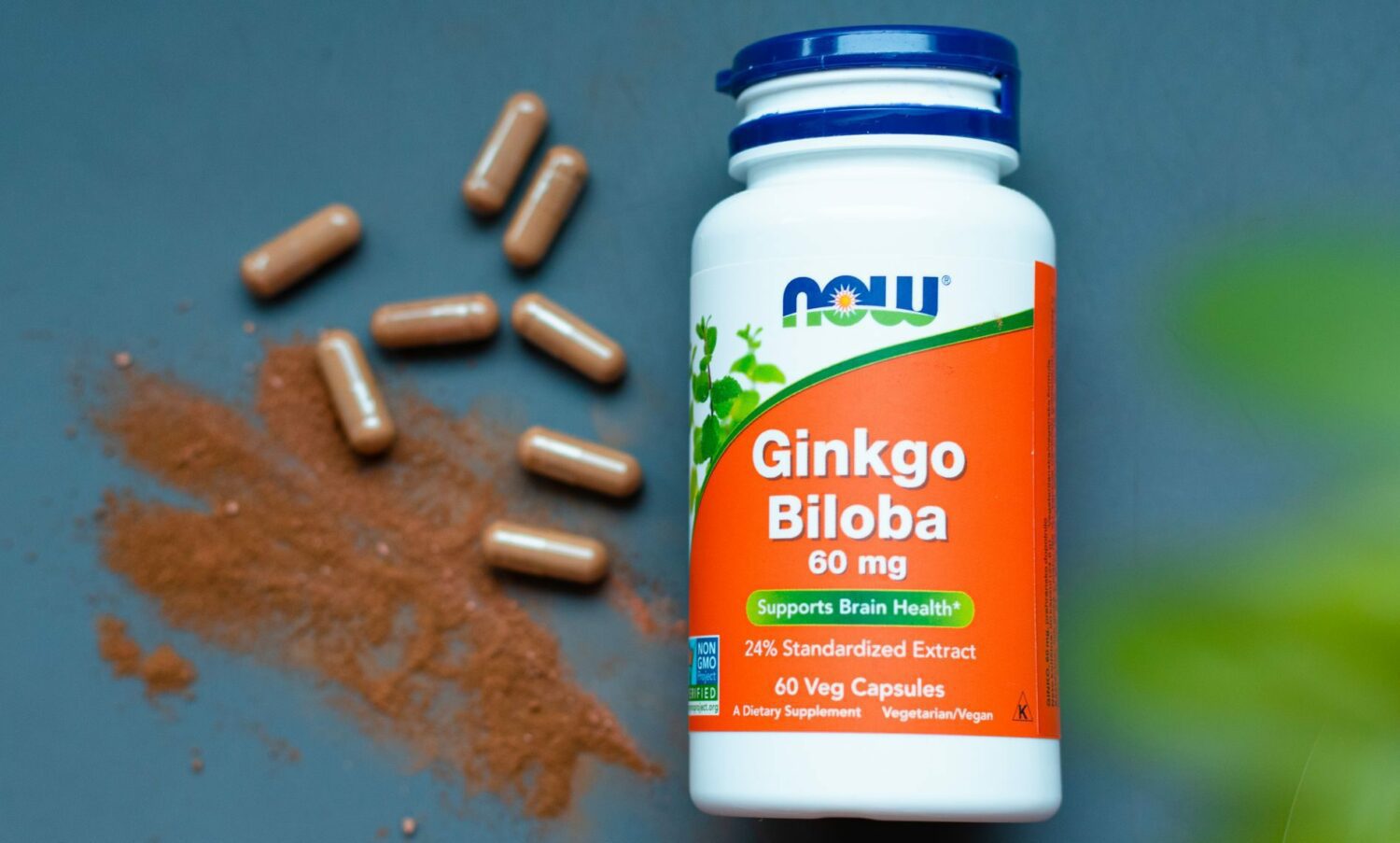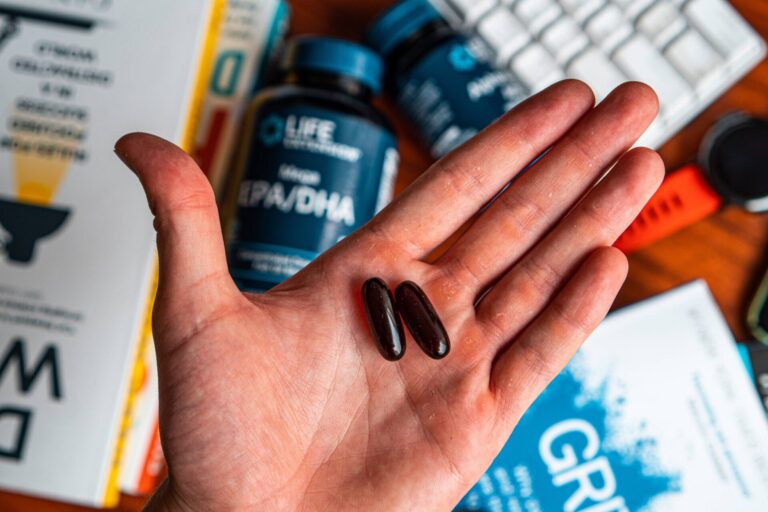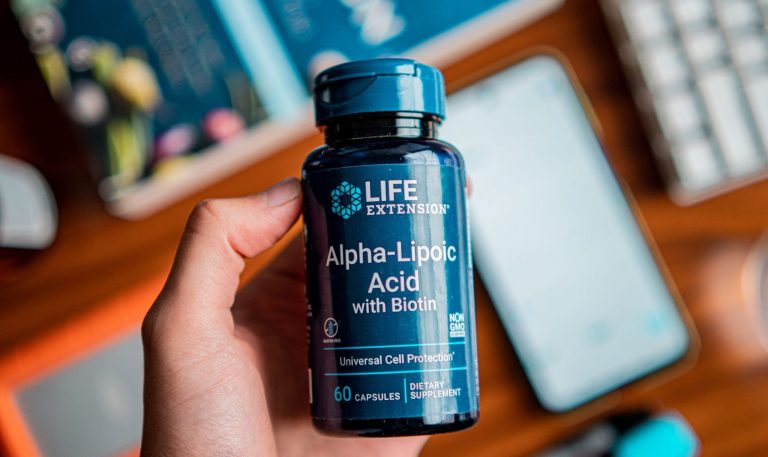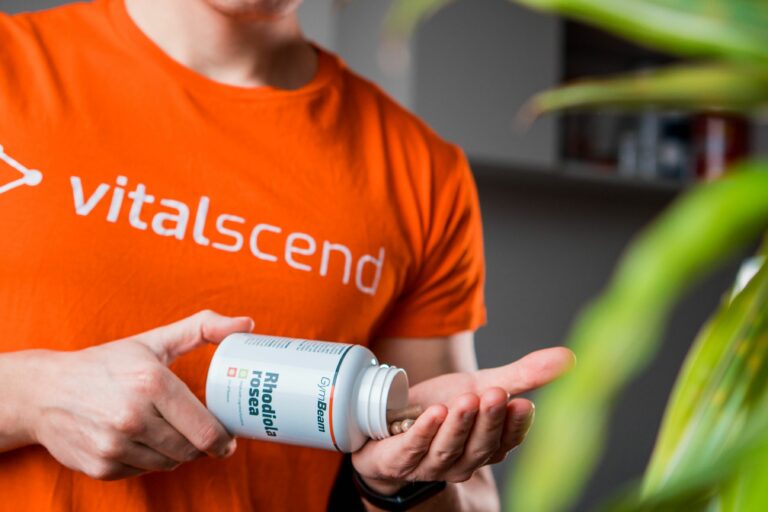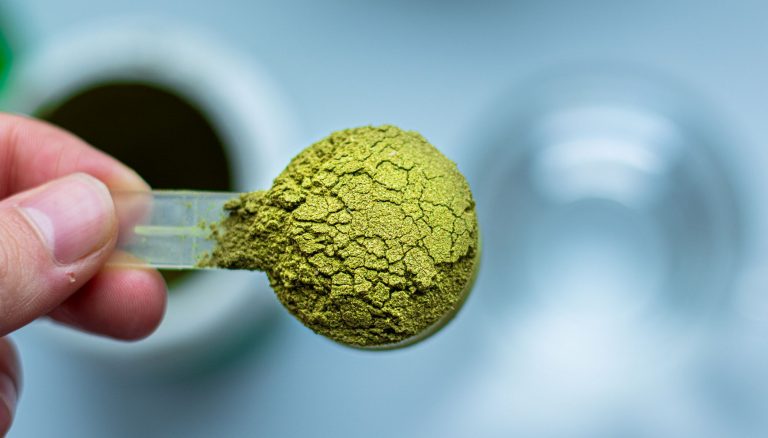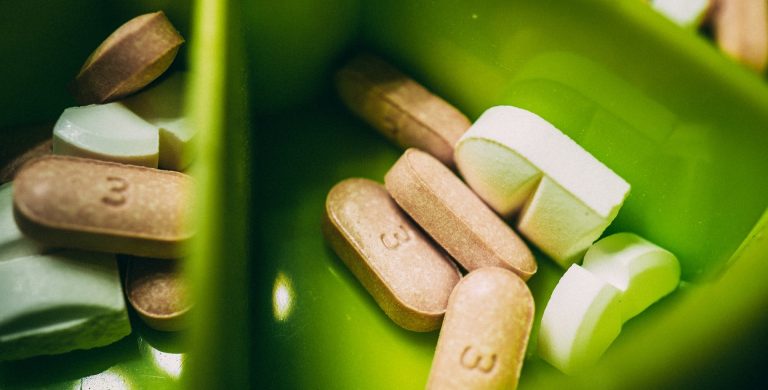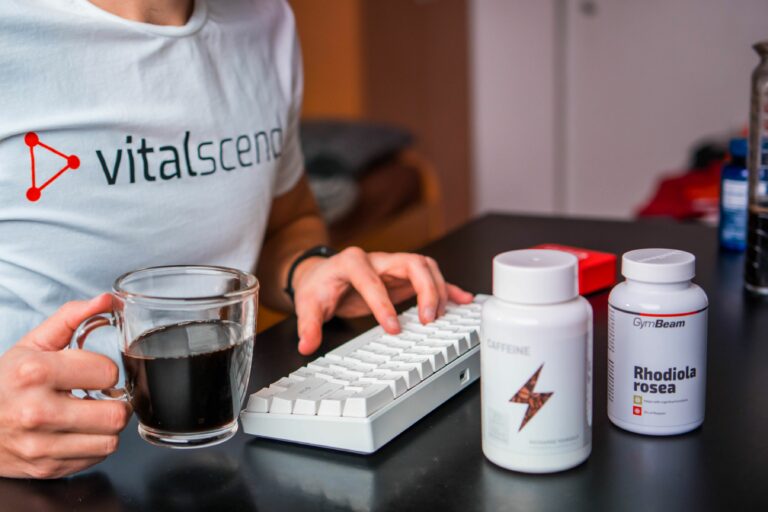Top 8 Ginkgo Biloba Benefits: Cognition, Libido, & Energy Boost + Best Supplements
Ginkgo Biloba is one of the most potent natural plant vasodilators. It is filled with many nootropic bioactive compounds, hence why ginkgo biloba benefits are dominating the brain health, function, and performance areas.
Ginkgo Biloba has been widely used in history, in traditional Chinese medicine for different purposes. Ginkgo Tree is native to South East Asia but also grows in Japan and Korea. Ginkgo trees can grow up to 50 meters tall.
Ginkgo Supplements & Alternatives
Also known as the maidenhair tree, it produces leaves and nuts. Most ginkgo Biloba supplements come in extract form, which is extracted from the ginkgo leaf. Nuts of the Ginkgo can be poisonous in higher amounts and should be avoided in their raw form.
There are many nootropics with similar effects to ginkgo such as Caffeine, Bacopa Monnieri, Cordyceps, and Lions Mane Mushroom.
Ginkgo Uses
Ginkgo has been used for a variety of health-related benefits it offers, most of which rely on its ability to improve blood flow. It has been used for neurodegenerative diseases, sexual dysfunction, vertigo, eye-related problems, brain-enhancing nootropic, skin health, and PMS.
Ginkgo is full of phytochemicals such as phenolic acids, proanthocyanins, flavonoid glycosides, and terpenoids which can have positive effects on health.
Ginkgo Biloba Extract And Ginseng Benefits
Ginkgo Biloba supplements come in capsules, powder, or extracts but this plant can be also used to make tea from its leaves. Whatever supplement you choose to use, consult with your doctor, and use a responsible dose (120-240mg), since higher dosages (<600mg) may cause bleeding and serious side effects.
Combining Ginseng and Ginkgo tea has become popular, because of the synergistic effects they can offer, which may improve alertness and brain performance, while increasing energy levels.
Ginkgo Biloba Extract comes from the Ginkgo leaf of the Ginkgo Biloba tree. It is one of the most powerful nootropic herbs out there, that can improve brain performance by improving brain circulation or blood flow.
What is ginkgo biloba?
Ginkgo biloba comes from a maidenhair tree which produces leaves and nuts. Ginkgo biloba is a potent nootropic supplement that usually comes in a ginkgo extract form, which is extracted from the ginkgo leaf of the ginkgo tree.
What are the benefits of Ginkgo Biloba?
The potential benefits of ginkgo biloba supplementation are:
– it is packed with nutrients, vitamins, minerals and also bioactive compounds
– It contains kaempferol, quercetin and ginkgolides, all powerful antioxidants
– it may improve cognitive function, memory and learning
– ginkgo has neuroprotective properties, may slow-down age-related cognitive decline
– ginkgo can potentially improve mood, reduce anxiety & depression symptoms
– it may improve vision and protect the eyes
– acts as vasodilator, which may improve sexual function
– can potentially boost energy and fight fatigue
– supports skin pigmentation and may prevent UV-damage
Does Ginkgo Biloba enhance cognitive function?
Ginkgo extract is considered a powerful nootropic. Also called EGb 761, research shows that it has the potential to improve cognitive function, memory and learning. Partially, this effect comes due to its acetylcholine increase (key neurotransmitter) and improved brain circulation (oxygen transport).
Ginkgo Leaf & Ginkgo Biloba Tree
Name origin: “Ginkgo” is phonetic pronunciation associated with the real Japanese name for a tree and “Biloba” refers to its unique leaf structure.
Ginkgo is referred to as a living fossil, due to the fact it is the only plant that has survived of its kind, dating back 270 million years ago.
The wild ginkgo Biloba tree grows in eastern China but is cultivated in other parts of China and Europe, North America, and Argentina.
According to the Centre for Food Safety, Ginkgo nuts/seeds are poisonous, containing some toxins like 4′-methoxy pyridoxine and cyanogenic glycosides which may cause diarrhea, nausea, and vomiting. Ginkgo is mostly used as a supplement in its extract form that comes from the ginkgo leaf.
Top 8 Potential Gingko Biloba Benefits
1. Highly Nutritious | Antioxidant Powerhouse
Ginkgo Biloba is considered one of the strongest nootropics, due to its blood circulation-enhancing effects it can exert.
Aside from that, ginkgo contains really powerful antioxidants and bioactive compounds which can have multiple effects on improving health or performance.
Some of the most important bioactive compounds found in Ginkgo Biloba are (1)
| Terpenoids | ginkgolides, bilobalides |
| Flavonoids | kaempferol, quercetin, isorhamnetin |
| Bioflavonoids | scadopitysin, ginkgetin, isoginkgetin |
| Organic Acids | ginkgolic acid |
Because of this composition, ginkgo has been used for many health-related benefits, most of which are associated with improving blood flow.
Many of these compounds found in Ginkgo can have antioxidant properties which may be helpful in the prevention of many coronary or lung-related diseases.
In fact, oxidative damage and inflammation can accelerate aging and degeneration. Antioxidant-rich foods or herbs can alter some of these pathways and reduce stress and inflammation, thus improving health and slowing down aging. (2)
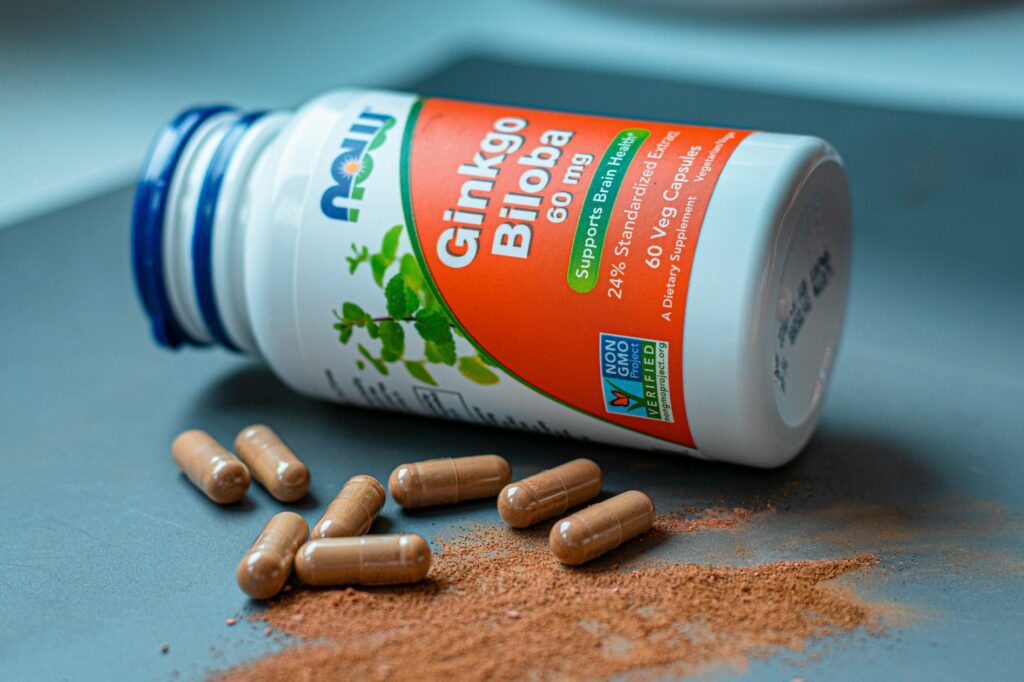
Kaempferol, Quercetin, Ginkgolides
Here are some examples of the powerful healing properties of Ginkgo’s bioactive compounds:
Kaempferol
Quercetin
Ginkgolides
- Kaempferol is a polyphenol antioxidant that may reduce the risk of many chronic diseases. Some epidemiological studies have shown that higher kaempferol intake is associated with lower cancer rates. (3)
- Kaempferol can modulate key elements in cellular signaling pathways linked to angiogenesis, inflammation, and apoptosis. It may help inhibit cancer cell growth and exert a protective effect. (4)
- Another powerful compound in Ginkgo is Quercetin, which is a flavonoid that has many anti-inflammatory effects and may improve blood sugar, blood pressure, and athletic performance.
- Quercetin is known for its neuroprotective ability, mostly due to its antioxidant-like effects, the ability to fight inflammation and reduce neurotoxicity. (5)
Ginkgo Biloba contains Ginkgolides, which are bioactive compounds, and terpenoids that have been shown to exert some neuroprotective effects. Ginkgolides and other ginkgo flavonoids were found to reduce hippocampal neuron death. (6)
2. May Improve Brain Performance
The reason behind Ginkgo’s popularity is its nootropic effect. Ginkgo extract can affect brain performance, learning, memory, and cognition.
In 19 healthy men aged 50-61 years old, Ginkgo Biloba extracts improved behavioral performance in working memory tasks. It significantly increased brain activation in the left temporal and prefrontal cortex, compared to the placebo. (7)
Some of the underlying mechanisms of Ginkgo’s function are associated with its free radical scavenging ability.
Neurotransmitters and Circulation
Ginkgo was also found to improve circulation in the brain via stimulation of blood vessel dilatation and inhibition of platelet-activating factor. Some of Ginkgo’s flavonoids can also reduce free radical damage. (8)
- Ginkgo’s use as a smart drug in terms of brain performance was only effective in one longer trial and ineffective in short trials. (9)
- Ginkgo Biloba Extract has the potential to increase acetylcholine, a key neurotransmitter in the brain that is involved in muscle contraction, endocrine function, and REM sleep functions. It does this by inhibiting Acetylcholinesterase, which is the enzyme that breaks down acetylcholine. (10)
This suggests Ginkgo’s potential use as a brain supporter as it can improve brain circulation and exert many antioxidant effects, but whether it will drastically improve cognition In healthy adults is not guaranteed.
EGb 761 – Ginkgo Extract on Memory and Learning
Ginkgo extract (EGb 761) facilitated memory processes and improved brain performance in mice. It also had positive effects on learning and short-term memory recall. (11)
- Ginkgo extract significantly improved recognition, recall, and auditory-verbal material (262 people older than 60 yrs, with a history of dementia or other neuro-cognitive impairments, for 6 weeks) (12)
- Ginkgo extract improved mental health according to subjects’ perception (66 healthy people aged 50-65 yrs, for 4 weeks) (13)
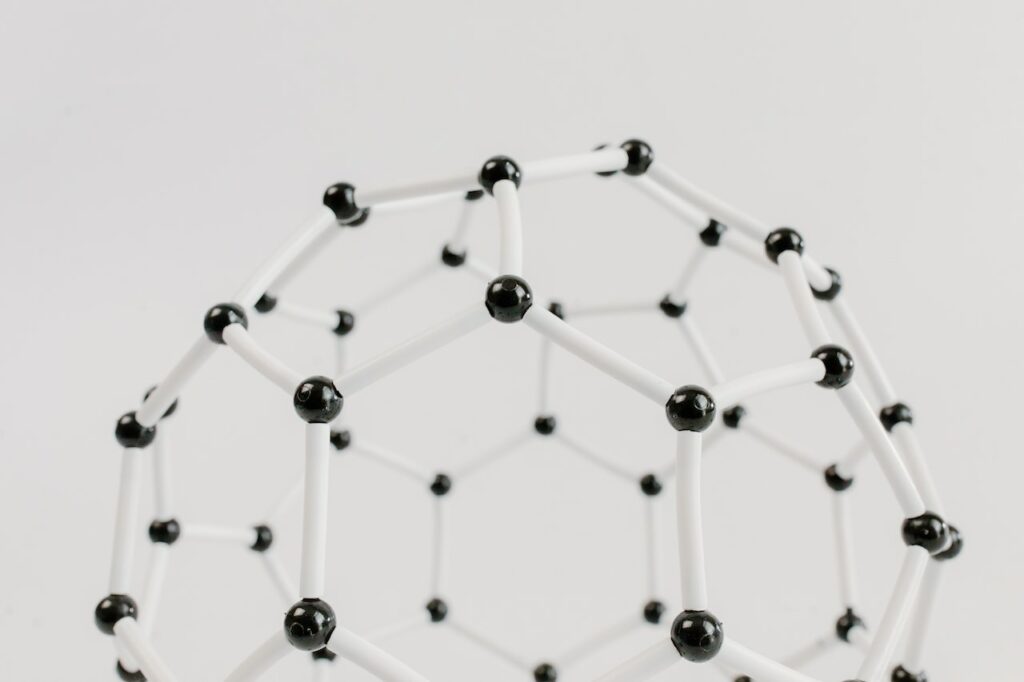
3. Potent Neuroprotective properties
Ginkgo is known for its use in age-related cognitive decline. It may be a potential agent in improving brain performance in old age and may aid in preventing some neurodegenerative diseases due to its neuroprotective effects.
As a potent antioxidant that contains terpenoids and flavonoids, Ginkgo was abundantly researched for its effects on the brain and potential to improve brain function. (14)
It May Aid In Preventing Age-Related Cognitive Decline
EGb 761 is Ginkgo Biloba Extract which had neuroprotective potency in conditions such as ischemia, seizures, and peripheral nerve damage. Two possible mechanisms of action are reducing oxidative damage and stimulating cell survival.(15)
Another large (3.612 participants) and long (20-year follow-up) review looked at cognitive performance and decline comparing Ginkgo (EGb 761) vs Piricetam. Surprisingly, Ginkgo was more effective at slowing down brain decline. (16)
In many other studies, cognition improvement was associated with Ginkgo supplementation and had a significant effect in comparison to placebo. Ginkgo also improved neuropsychiatric symptoms and daily activities. (17) (18)
In patients with Alzheimer’s, taking Ginkgo extract at higher dosages (240 ml) was associated with improved memory, the ability to manage daily activities, and reduced stress & mental health problems. (19)
4. May Improve Mood and Well-Being
Many of the brain-supportive compounds can affect neurotransmitters in the brain, which also plays role in mood control. People with mood swings or mood problems that are related to cognitive decline are probably going to feel the most improvement in this area.
Potential To Reduce Stress, Anxiety, And Depression
It is not like a “good-feeling” inducing drug, but it may alter mood and behavior changes due to its hormone-balancing effects, in the long run.
Anxiety
There are terpenoid components such as ginkgolides A, B, and C which can produce and be responsible for some of the anxiolytic effects of Ginkgo. In concussion, ginkgolide A had significant anxiolytic effects in repeated administration in mice. (20)
- Amongst 107 people with anxiety – a higher dose of Ginkgo extract at 480 mg was more effective for dropping anxiety compared to a placebo or lower (240 mg) dose. (22)
- Another study on rats showed that acids from Ginkgo leafs GAC helped with reducing anxiety. (21)
Depression
When 136 elderly patients with depression supplemented with Ginkgo Biloba extract in addition to an antidepressant, synergistic effects occurred. Ginkgo reduced symptoms of anxiety and depression significantly and improved neurological function. (23)
Another important study on Ginkgo effects on depression was done on 1570 volunteers, who could choose whether to use a placebo or Ginkgo Biloba extract. There was a significant association between improved mood, alertness, life quality, and intake of Ginkgo Biloba. (24)
5. May Improve Vision & Protect The Eyes
Ginkgo Biloba may help with eye health and eye protection. The main mechanism behind its effects is improving circulation in the eye. In 11 healthy volunteers, Ginkgo Biloba extracts improved optical blood. (25)
Glaucoma is a group of conditions that can affect the eye and impair vision, due to optic nerve damage. On average, in glaucoma, ocular blood pressure is reduced and intraocular pressure is increased, which can increase the risk of vision impairment.
Extra Research: Ginkgo on Vision, Eye, and Glaucoma
- Ginkgo Biloba extract can potentially be beneficial for glaucoma, in cases where glaucoma progresses despite normalized Intraocular pressure since it affects factors such as oxidative stress, mitochondrial function, and circulation in the eye. (26)
- In 99 patients with dry macular degeneration, Ginkgo extract significantly improved vision, especially in the higher dosage group which took 240mg/die Egb 761. (27)
- In younger individuals aged 11-19 years, with lasting diabetes mellitus (6-12 years) Ginkgo Biloba extracts improved scores on color vision tests by 25% after therapy, and in 4% of patients after 3 months. (28)
- Another plant that was used for vision improvement in conjunction with Ginkgo is Bilberry, specifically its anthocyanins. In patients with normal-tension glaucoma, bilberry and Ginkgo treatment exerted positive effects on visual function. (29)
- However, in this study, Ginkgo didn’t have any significant effect on contrast sensitivity and visual field in patients with normal-tension glaucoma. (30)
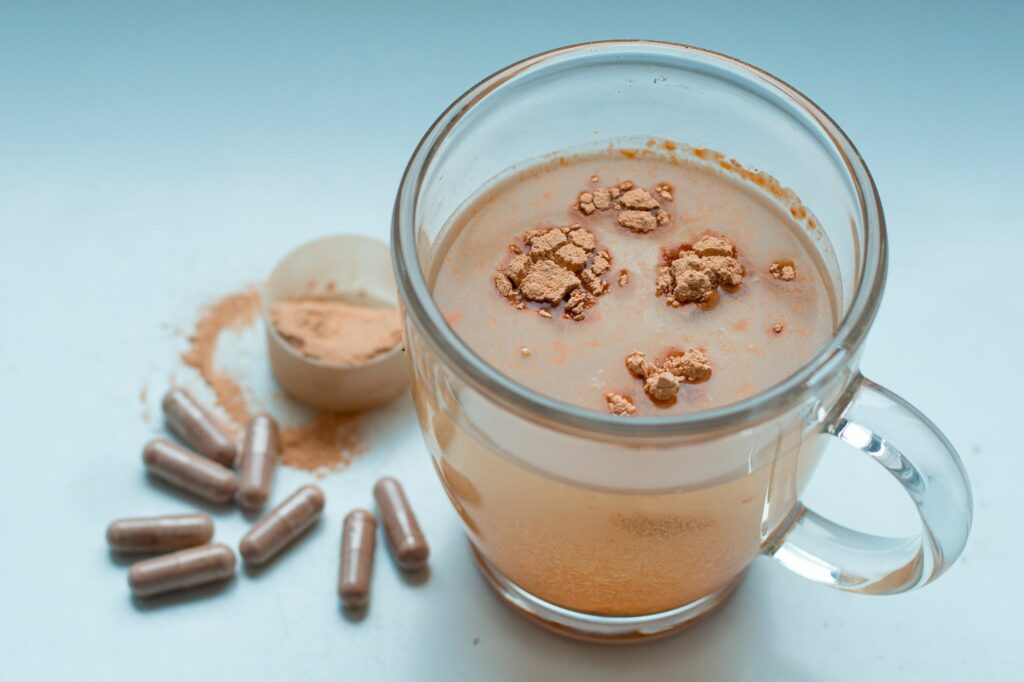
6. Could Improve Sexual Function
Many of Ginkgo’s sexual enhancing effects are closely related to its ability to improve circulation. This being said, Ginkgo may exert some potential effect as a libido booster only in people who have poor circulation as the main problem behind erectile dysfunction.
Acts As A Vasodilator: May prevent erectile dysfunction
It was shown that Ginkgo extract significantly improved blood flow, systolic, and diastolic peak velocity in people with coronary artery diseases. (31)
One of the main factors when it comes to circulation is (NO) Nitric Oxide. In endothelial cells, the lining of your blood vessel, NO is constantly synthesized by the amino-acid L-Arginine to open up the blood vessels and enhance blood flow.
Extract of Ginkgo Biloba can increase endothelial nitric oxide production, which directly improves circulation and may lower blood pressure. (32)
- Ginkgo Biloba extract at 300 mg (single dose) improved sexual arousal in 68 sexually dysfunctional women. They took the extract for 8 weeks along with sex therapy, which resulted in a significant increase in sexual desire. (33)
- Ginkgo was also powerful in reversing antidepressant-induced sexual dysfunction, over a period of 6 to 8 weeks. In long-term studies, GBE positively affected libido, ability to achieve orgasm, and erectile function. (34)
7. May Boost Energy & Fight Fatigue
Improvement in blood circulation has many other health-related effects elsewhere in the body, one of them being an energy boost.
Opens up Energy Channels in the Body
One of the best ways to increase energy and endorphins is the Wim Hof Method, which focuses on deep breathing and cold exposure. Why? Because it has a similar effect to Ginkgo, it exerts vasodilatory effects vie to increase Nitric Oxide production, which means more oxygen in your cells. More oxygen means more energy. (35)
The combination of Rhodiola and Ginkgo can potentially improve athletic performance by increasing maximal oxygen uptake (VO2max) and reducing fatigue. (36)
Another study supported this finding. Six-week supplementation of 160 mg/day of Ginkgo Biloba extracts improved aerobic performance, VO2max values, and antioxidant capacity in the blood. (37)
8. Promotes Healthy Skin
Another superpower associated with improved blood flow is skin health.
Now the logic would say that it improves peripheral circulation and improves blood flow in the small blood vessels close to the surface. As with Niacin, this was found to be helpful for flushing toxins off of the skin which might reduce skin toxicity.
Supports Skin Pigmentation, Prevents UV-Damage
However, it looks as if Ginkgo works like a real adaptogen. In 27 healthy participants, ginkgo had a multi-directional modulating blood flow effect. In some subjects, it increased, while in others it reduced skin blood flow, which means it can adapt to the consumer needs. One thing is sure, it had a vaso-regulatory effect. (38)
Ginkgo supplementation improved skin pigmentation in patients with vitiligo. 40 mg were administrated three times daily, which slowed down depigmentation and improved re-pigmentation in 10 patients of the Ginkgo extract-taking group. (39)
Topical application of Green Tea and Ginkgo Biloba extract combination exerted photoprotective skin effects, affecting different mechanisms. Ginkgo was found to be more beneficial for reducing UV-induced skin damage. (40)
Fibroblasts are skin cells that play a major role in the synthesis of collagen and extracellular matrix for animal tissues.
Many of Ginkgo’s constituents have anti-inflammatory effects on the skin. Compounds such as quercetin, kaempferol, and ginkgetin also had positive effects on the proliferation of human skin fibroblasts in vitro. (41)
Disclaimer: The content on this Site is for informational purposes only, and it is NOT intended to give or replace medical advice. Make sure you consult your physician, doctor, or health professional before using any supplement, for its dosage, uses, precautions, and interactions.
Ginkgo Biloba Uses, Side Effects & Safety
Uses
Side Effects
Doses
Precaution
Ginkgo Biloba has been used for a variety of conditions that originate from poor circulation. As with all herbs, this is a potential agent in treating or preventing certain conditions, but not a replacement for a medical drug. Always consult your doctor before supplementing with Ginkgo Biloba.
Ginkgo Biloba has been used in: (42)
- Age-related cognitive decline such as Alzheimer’s & Dementia
- Coronary diseases associated with poor circulation such as claudication and peripheral vascular disease
- Diabetes-related conditions: diabetic retinopathy or vision problems in diabetics
- Dizziness (vertigo), anxiety, and schizophrenia
- Premenstrual syndrome (PMS)
Ginkgo Biloba Leaf Extract is likely safe, taken by healthy adults as a supplement in appropriate doses.
- Some Side effects of Ginkgo Biloba extract (usually at higher dosages):
- Stomach pains
- Headaches
- Allergic skin reaction
- Constipation
- Dizziness
- Restlessness
- Forceful Heartbeat
- Ginkgo biloba is generally safe at dosages of 120-240 mg a day, separated into more doses. Since higher dosages haven’t been studied yet, exceeding 600mg might cause unwanted side effects.
- Ginkgo Biloba interacts with drugs that affect blood thinning and blood clotting because ginkgo itself slows down blood clotting and can improve circulation.
- Ginkgo interacts and should not be taken in combination with Ibuprofen, Anticoagulant drugs, and Warfarin.
Just as with any other plant medicine, herbal remedy, or edible leaf, it is important to know that you should not experiment with these herbs by picking them up in nature and consuming them in their raw form.
If you want to achieve the benefits of some herb or plant, you should aim for FDA-approved supplements because these supplements are tested for human consumption, processed to forms that are edible, and will not produce or will minimize side effects. This will improve the safety of taking that herb as a supplement. Also, raw ginkgo nuts are poisonous and should be avoided.
Many of them have healing and hormone-balancing properties, but are very highly concentrated and may produce some side effects in their raw form.
Because of its blood circulation-improving effects, it should be avoided around surgery. Because of its toxicity at high dosages and drug interference, it should be avoided in:
- Pregnant or breast-feeding
- Children and infants
- Bleeding disorders
- Seizures
- Diabetes
- Infertility
- Surgery
summary
Ginkgo Biloba is a powerful nootropic herb, with powerful antioxidant properties. Ginkgo may produce cognition-improving effects, mainly due to its vasodilatory effects. It is rich in phytochemicals, which may have positive effects on longevity and anti-aging. GB can potentially be beneficial for boosting energy, mood improvement, eye & skin support, and brain protection.
Frequently Asked Questions
Can Ginkgo Biloba improve memory, focus, and attention?
There is some evidence for the potential of ginkgo extract to improve both memory and learning. Although some of the studies are done on animals, there were positive short-term memory recall effects and facilitated learning. These effects seem to be dependent on the individual, but mainly work by increasing acetylcholine and improving circulation in the brain.
How can Ginkgo Biloba aid in neuroprotection?
Ginkgo extract has some neuroprotective properties that may prevent or slow-down cognitive decline. The potential mechanisms behind this is reducing oxidative damage, stimulating cell survival, and improving blood flow.
Why is Ginkgo Biloba considered a powerful nootropic?
Ginkgo Biloba is considered a powerful nootropic mainly because the bioactive compounds in its nutrient package may be effective from brain function support. Compounds found in EGb 761 (ginkgo extract) like kaempferol, quercetin, and ginkgolides are known to be anti-inflammatory, aid in acetylcholine production, and cell survival. Along with some other flavonoids in it, they work together to improve circulation in the brain. This may lead to improved brain function, memory recall, facilitated learning and so on.
Ginkgo Biloba or Coffee, which one is better?
It depends on the individual. In general, coffee is a lot more popular, studied, and easily accessible drink. Many people do not consider coffee (caffeinated) as a supplement, rather a regular beverage. In general, both plants are powerful nootropics and have the potential to improve brain function. Coffee acts faster by blocking the adenosine receptors, making us feel alert, focused and energized, acutely. Ginkgo on the other hand, works more to improve circulation, reduce inflammation and increase acetylcholine, and it’s effect is felt with longer consumption, not as acutely as caffeine.

